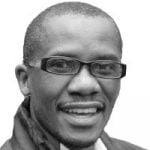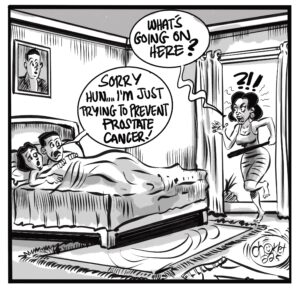Chairperson of the German parliamentary committee for Southern African Development Community (SADC), Martin Rabanus says Europe will continue to speak out when opposition leaders in the region are “incarcerated for obvious political reasons”.
Rabanus was speaking when he met a group of journalists from Southern Africa at the German parliament (Bundestag) in Berlin German. The German law maker was echoing the decision by the EU parliament to call for the release of Hakainde Hichilema.
He said much as that was seen as interference in Zambia’s internal affairs, European countries like Germany considered Zambia a key partner in development and as such there was need to speak out on matters of concern.
“We have to work on the basis of true partnership and indeed on the basis of friendship but at the same time, speak our minds clearly and voice our concerns as clearly as possible. If for example, as the case that you have mentioned of an opposition leader in Zambia is incarcerated for obvious political reasons, then we have to speak out about that and we have to clearly voice our opposition to that kind of treatment,” Rabanus said.
“But once again, I add this, this does not only concern Africa, you might have heard about our great friends, Turkey, for example, the tensions. Let us put it this way, that our current relations are certainly not subjected to a state of perfect harmony at all. But we do believe it is very important to stand up for our rights and for our values as well.”
Rabanus who represents the constituency of Taunusstein in the German parliament nevertheless advised that such concerns need to be communicated through correct diplomatic channels.
“I’m not in favour of using media or putting out statements through the media or the press in order to accuse people. I think that is not productive, it is not conclusive at all. But I do believe that on a personal level or on a one-on-one level, we need to be as candid and as forthright as possible. But it has to be a level playing field, we need to meet at eye-level, so to speak in order to have that candid and direct conversation and get the message across. It is very important that you avoid being perceived as European shoulders, looking down at African countries, or for that matter any other country,” Rabanus said.
And SADC parliamentary committee member Annette Severy said parliamentary partnerships offer another important channel of communication to air concerns.
“I agree with what my colleague from the parliamentary group has said that we should not resort to public expressions of voicing opinions in that sense. But that we should try to voice our concerns in a direct way and there is also other means, we have a partnership programme between parliaments as well. That allows us, for example, to address issues with our colleagues from other parliaments. I, for example, I’m the mentor for both the Turkish colleagues and colleagues from Ethiopia who are being subjected to great pressure in the sense and I believe that raising this issue at the higher level is very important.”
























